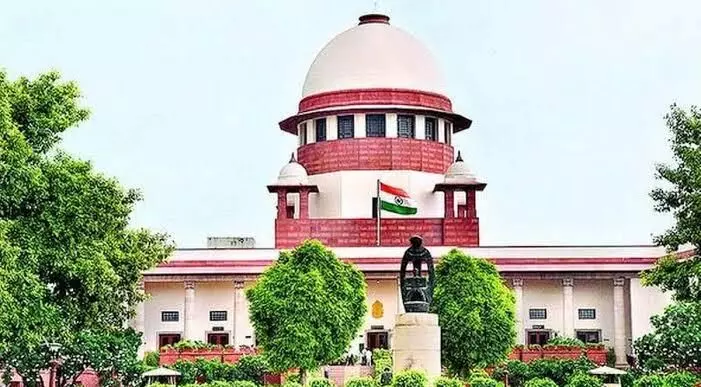
SC dismisses plea seeking cancellation of CBSE exams for private students
text_fieldsThe Supreme Court on Wednesday, July 28 rejected a plea to review its order issued on June 22 that agrees with the CBSE's scheme to conduct offline exams for the private, second compartment and 'patrachar' Class 12 students, stating that "no case for review is made out".
CBSE Grade 12 students falling under the three categories— private, second compartment and 'patrachar', submitted a review petition to the Supreme Court to revise CBSE's assessment scheme for the three categories, seeking consistency with regular Grade 12 CBSE students' assessment scheme.
The Central Board of Secondary Education cancelled physical offline exams for regular Grade 12 students in light of the pandemic. A revised assessment scheme was also devised to grade them, which the Supreme Court greenlighted. Students falling under the three categories approached the Supreme Court to direct the CBSE to do the same for them, reported The Hindu.
However, the apex court issued an order on June 22 whereby it refused to interfere with the assessment schemes proposed by both CBSE as well as the Council for the Indian School Certificate Examinations (CISCE). The court also approved CBSE's decision to conduct offline examinations for students from the three categories, whose performance CBSE claims cannot be evaluated through the results of their internal assessments from Grade 10, 11 and 12.
Justice A M Khanwilkar and Justice Dinesh Maheshwari said in an order passed on July 28: "The present review petition has been filed against the final judgment and order dated June 22, 2021. We have perused the review petition as well as the grounds in support thereof. In our opinion, no case for review is made out. The review petition is accordingly dismissed."
The offline exams for private, compartment and patrachar Grade 12 students are expected to take place sometime between August 15 and September 15. In the plea, students stated that attending offline exams during a pandemic would endanger their lives, stating that a physical-mode board exam "would clearly violate their right to life and health as guaranteed by Article 21.





